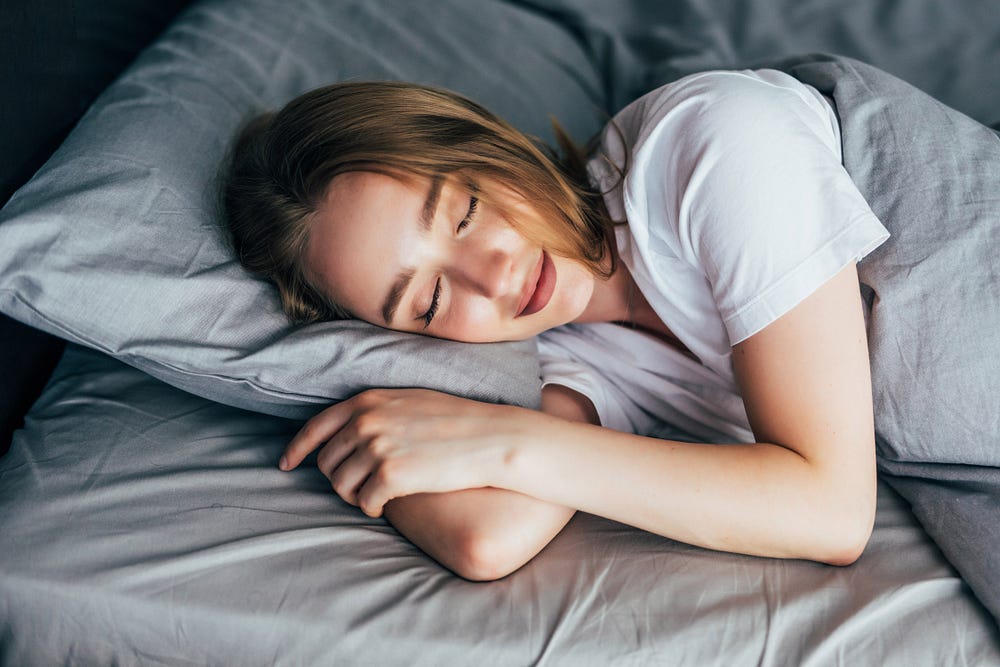How Sleep Boost Skin Health : Beauty sleep
The Role of Sleep In Skin Health: Tips For A Restful Night

Sleep originates from the Proto-Germanic root “*slēpaz,” which meant “sleep.” It is a normal bodily process that allows your body and brain to rest; if this process is disrupted, it could affect your health and skin. Our bodies depend on a good night’s sleep for rest and recovery. Sleep is vital for healthy skin; without regular and quality sleep, many people notice an increase in fine lines, uneven pigmentation, and reduced elasticity in their skin. Surveys indicate that a considerable percentage of Indians are getting less than six hours of sleep per night, with this figure increasing over time.
Sleep and Skin Health
Sleep is often called the body's natural healer. While we sleep, a complex series of biological processes occurs, contributing to healthy and glowing skin. During sleep, our body releases growth hormones that stimulate cell regeneration and repair. Sleep also regulates cortisol, the stress hormone, which helps in breaking down collagen. There are numerous processes in our body directly or indirectly related to our sleep. Sleep plays a major role in maintaining skin health. Today's blog will discuss the importance of sleep for healthy and hydrated skin.
The Effect of Sleep on Skin Health
There are enormous effects of sleep on our skin, which we usually ignore or don't give much importance. Basic things related to sleep and skin we should know in our daily routine, so we can correct them.
Here are five key ways that sleep affects skin health:
1. Cellular Repair and Regeneration: Growth hormones are released during deep sleep stages, which repair and regenerate the skin cells. The division of new cells peaks between 11am and midnight. Distrurbed sleep impairs this repair process and leads to signs of ageing.
2. Hormonal Regulation: Cortisol levels drop during quality sleep, which is a stress hormone. The level is lowest at night and highest in the morning. High levels at night may cause sleep deprivation and insomnia.
3 . Inflammation Reduction: Sleep deprivation increases inflammation, which worsens skin conditions like acne, psoriasis, or rosacea. Skin becomes more irritated and dry.
4 . Antioxidant Protection: Melatonin, a hormone produced during sleep, has antioxidant properties that protect skin cells from damage. Melatonin supplements are commonly used to address sleep issues like insomnia.
5. Hydration and Barrier Function: Adequate sleep supports the skin's protective barrier, which prevents excessive water loss. During sleep, skin restores its moisture balance, helping prevent dryness and dehydration.
Visible Effects of Sleep Deprivation
- Hanging or drooping eyelids, red eyes, and dark circles under the eyes are common among the most noticeable effects
- Skin becomes duller and may develop an uneven tone
- Fine lines and wrinkles become more visible due to reduced collagen synthesis.
- Increased dryness due to loss of hydration
- Sleep deprivation leads to loss of elasticity from skin, which accelerates skin ageing.
- increased cortisol level
Tips For Better Sleep To Support Skin Health
As we know, how beneficial beauty sleep is for glowing skin, the beauty sleep hours are from 10 pm. to 7 am. Create a cool, dark, and quiet sleep space to sleep. Replace your pillowcase frequently to prevent the buildup of oil, dirt, and bacteria.
Conclusion
By prioritizing sleep and adopting a few simple habits, you can give your skin the support it needs to look and feel its best. So, the next time you're tempted to stay up late, think twice.



Comments
Post a Comment